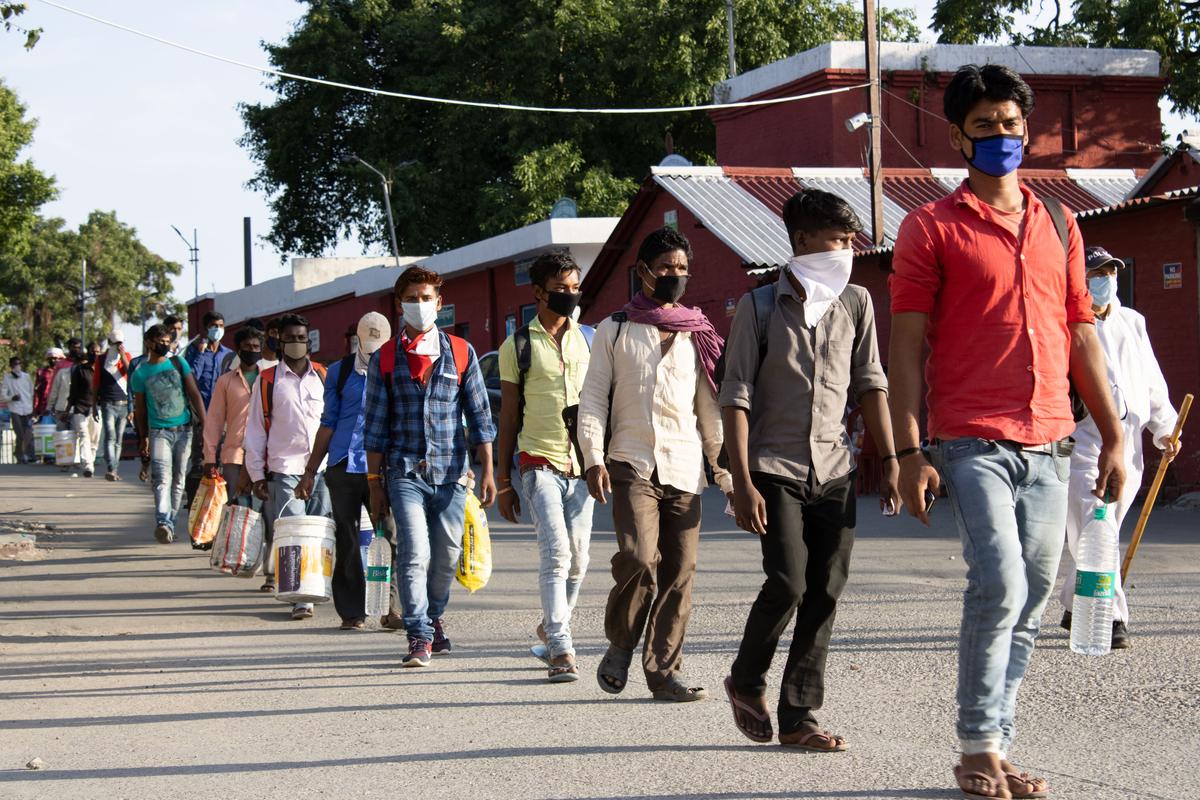In a case that has spotlighted, once again, the rising concerns over the treatment of Bengali-speaking migrant workers, the Calcutta High Court on July 10 posed a series of urgent questions to the Government of Odisha regarding the alleged illegal detention of a young labourer from West Bengal.
A Division Bench comprising Justices Tapabrata Chakraborty and Reetobroto Kumar Mitra was hearing a habeas corpus petition filed by Rajjak Sk., the father of Sainur Islam, a migrant worker employed in Jagatsinghpur, Odisha. According to the plea, Sainur was picked up by Odisha police during a “special identification drive” and has not been seen or heard from since. The petitioner claims no formal arrest intimation or case details have been shared with the family, raising grave concerns about arbitrary detention and denial of constitutional rights.
“Where are the migrant workers now? On what basis were they detained? Has any action been taken against them?” the court asked while hearing the case, as reported by LiveLaw.
Appearing for the petitioner, Advocate Raghunath Chakraborty submitted that the young man, like many others from Bengal, had travelled to Odisha in search of work and had been rounded up solely because he spoke Bengali. It was alleged that he was held beyond 24 hours without being produced before a magistrate—an act in direct violation of Article 22 of the Constitution and settled law under DK Basu v. State of West Bengal.
The Court was also informed that such detentions are part of a disturbing pattern. Senior Advocate Kalyan Banerjee, who appeared in support of the petitioner, cited recent instances of Bengali-speaking labourers facing similar treatment in other states, including Assam, where language and appearance are being used as grounds to presume foreign nationality.
Taking note of these submissions, the Bench observed that the allegations raised serious questions of fundamental rights violations and could not be brushed aside simply because the alleged illegal detention took place outside West Bengal. “This Court cannot remain a silent spectator,” the judges said, affirming the maintainability of the petition under Article 226 of the Constitution, which empowers High Courts to issue writs, including habeas corpus, even in cases where detention occurs outside their territorial jurisdiction.
“This Court has the power to issue writs including habeas corpus under Article 226 of the Constitution of India which allows it to address violations of fundamental rights, even if the detention occurred in another State.”
“In view of the nature of allegations made, prima facie, we are of the opinion that the writ petition is maintainable and this Court cannot be a silent spectator. The authorities need to be directed to produce all relevant documents to enable this Court to infer as to whether Sainur had been illegally detained.”
Before passing any formal directions to the Odisha authorities, the Court framed six pointed questions that must be answered:
- “Whether Sainur had been detained or is missing?”
- “If detained, whether such detention is in connection with any Court’s order?”
- “If detained, what are the grounds towards such detention?”
- “Whether Sainur had been detained upon informing him of the specific grounds for his arrest?”
- “Whether Sainur’s arrest is related to any investigation being conducted by the Odisha police authorities or the officials of the State?”
- “Whether there has been any correspondence between the authorities of the State of West Bengal and the authorities of the State of Odisha?”
To facilitate an inter-state response, the Court directed the Chief Secretary of West Bengal to appoint a nodal officer to coordinate directly with the Chief Secretary of Odisha, transmit the Court’s queries, and ensure submission of all relevant documents before the Bench by the next date of hearing.
“For compliance of the order and for placement of all necessary instructions and documents before this Court on the returnable date, we direct the Chief Secretary, Government of West Bengal to coordinate with the Chief Secretary, Government of Odisha.”
West Bengal Advocate General Kishore Dutta, appearing for the state, assured the Court that the government would extend full support to the affected workers and engage with the Odisha administration to resolve the issue. The Bench expressed its expectation that both states would act swiftly and transparently.
The matter will next be taken up on Monday, July 14, 2025, at 12:00 noon, when the Court expects detailed responses and documentary evidence from both states.
As the order was passed in open court in the presence of the Advocate General, the Bench clarified that no further communication is required from the petitioner to West Bengal officials. However, a server copy of the order must be served upon the first three respondents in the case, with an affidavit of service filed on record before the returnable date.
The complete order may be read below.
Related:
Bengali-Speaking Migrants Detained En Masse in Odisha: National security or targeted persecution?

